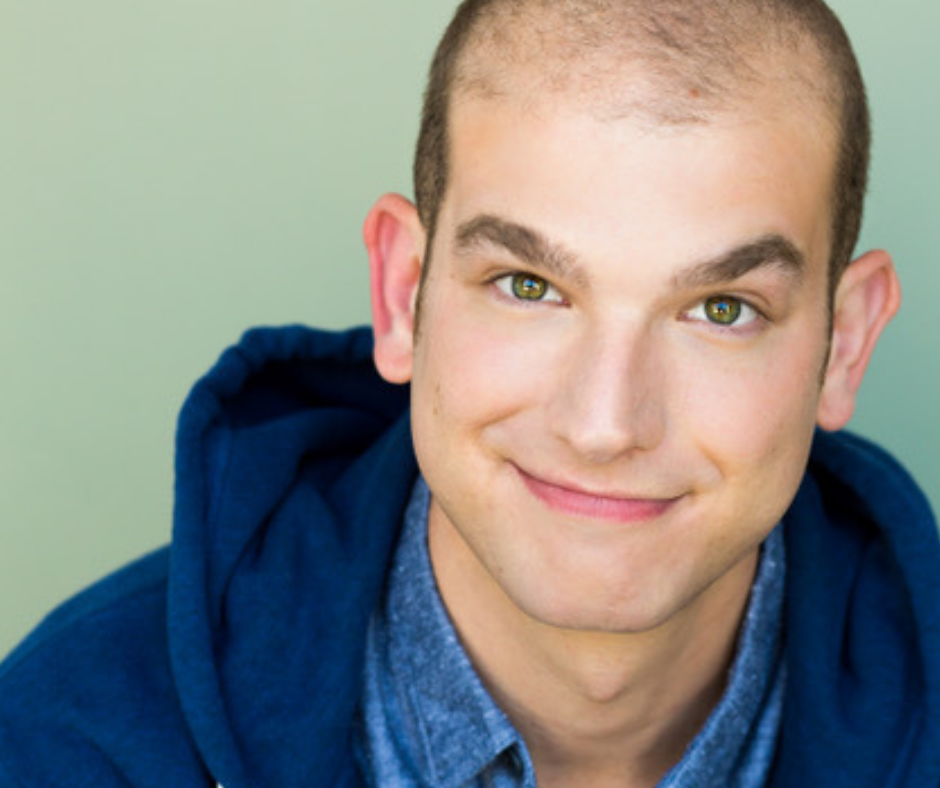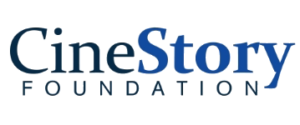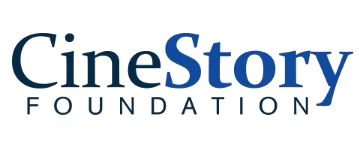First Person: Robert Axelrod

Recently, CineStory’s Co-Executive Director Carlo Martinelli caught up with the 2019 CineStory TV Fellow, Robert Axelrod as part of our First Person interview series. Robert is based in Los Angeles and, when not writing, works as a legal assistant at Felker Toczek Suddleson Abramson LLP as a legal assistant. In addition to winning the CineStory TV Fellowship, Robert has placed in several writing contests and fellowships, most notably as a quarterfinalist in the Academy’s Nicholl Fellowship, as a finalist for the Sundance Screenwriters Lab, PAGE International Screenwriting Competition, Austin Film Festival Screenwriting Competition, and ScreenCraft Pilot Launch Contest. He also had a project chosen as an official selection for the Producer Guild of America’s diversity fellowship program. You can read more about Robert by clicking here.
In the following conversation with Carlo, Robert reflected on what he took away from from his experience as the TV Fellow at this year’s TV Retreat, and how the experience as our TV Fellow has impacted his developing career thus far.
Q: Tell us when you attended a CineStory retreat.
I attended CineStory in March of 2019 as part of the CineStory TV retreat.
Q: How was your experience in Idyllwild?
My experience in Idyllwild was truly one of the most extraordinary experiences of my life, creatively, professionally, and personally. Not only is the scenery of Idyllwild truly stunning, but being there for four days with a group of other extremely talented writers and gathering so much knowledge and insight under the tutelage of the industry mentors…it was unlike anything I’ve ever experienced before. Between the natural beauty of Idyllwild, the nurturing warmth and support of the CineStory team, and the talent of so many amazing people, the experience was an oasis of creativity. It was such a special and inspiring experience.
Q: Did the retreat have an impact on your writing, your view of the business, your career, etc.?
It absolutely did. One of the things that I think the CineStory retreat does so well is speaking to, and educating, both the artist and the businessperson in every writer. I’ve attended a number of panels or conferences that seem to have a real focus on one or the other, but CineStory truly speaks to both the art and the business of writing. And not just in a fun or catch slogan way, they legitimately nurture writers in the art and business of television writing.
For example, for me personally, on the artistic front, I walked away with a new perspective on the difference between what makes a story compelling for television versus film. Ava Jamshidi said on a panel that, “film tells the most interesting story in a person’s life, and television tells the story of an interesting person.” It was such a succinct and clear way of looking at the core of what makes for a good story in film or in television, and really changed my artistic view of the two mediums. It also made me look at my own work differently. And for me on the business front, I walked away with much more confidence about the way in which I present myself as a writer and also what my next steps are, professionally.
Q: A big part of the retreat is getting direct feedback on your work from mentors in the entertainment industry? How did that go, and was there any feedback that gave you a different outlook on your work?
Let me just start by saying that I think in all three mentor sessions I had, I (jaw-agape) told the mentor sitting across from me and giving me notes, “Wow, you actually…like, read it. Like you really read read it.”
I’m so used to getting feedback where people don’t remember character names from your script, or suggest you add something that’s already in your script, or just seem to have skimmed the entire script. Every mentor I had read with such focus and it showed in their notes. I’ve never received notes with such specificity, or been asked questions about my work that really challenged me to think differently. The notes forced me to be a better writer, in order to address them. They were all spot-on notes that I would not have thought of myself, and all of them really pushed me and my abilities as a writer.
The fact that the mentors take such an immense amount of time and interest in your work makes the feedback so unbelievably valuable. I’m honestly still impressed with the closeness of their reading and the depth and nuance of their feedback. It’s so clear that all of the mentors genuinely want to help every writer further their writing and careers, and their support coupled with their insight made for a truly invaluable experience.
Q: You have a job working at an entertainment law firm, which might seem unusual for an aspiring writer. Do you feel that getting real world experience in the industry has informed your own emerging career?
It seemed unusual to me at first, too! One of the things writers are often told is, “If you can do anything other than writing…do that.” I’ve always found the notion a bit troublesome. When you think about the most prolific showrunners and creators in television, the ones who you most associate with success, the reason they are successful is because they do much more than just writing. The best showrunners aren’t just great writers, they’re great producers, great leaders, great strategists, great public speakers, and so many more things.
Having found myself working in the world of entertainment law, I’ve grown as a writer because I’ve learned so much about the business side of a writer’s career. I’ve gotten to interact with some incredible clients and watch their careers evolve from one job to the next. I think working within the industry can certainly provide a tremendous education and give one a lot of perspective on the inner workings of this industry.
That being said, I think that if you are a writer—it’s imperative that your writing remain the priority. The things that I learn at my job at the law firm help to further my career in one capacity, and my continual work on my writing outside of my time at the law firm help to further my career in another. As long as you can make writing your priority (or keep it in first position, to put it in entertainment legal jargon), having an opportunity to work a day job that exposes you to the inner workings of the industry can be extremely valuable.
Q: What advice would you give to emerging writers or filmmakers who are looking for a platform to get their work read, seen, and recognized?
Such a great question. I am a big proponent of getting your work out there and sharing it. What is so amazing about places like CineStory is that they provide a platform for your work to be read, seen, and recognized by top industry professionals. Furthermore, by seeing that you have a script that placed in CineStory, someone else may be more inclined to take a look at your material. “Well, if CineStory says it’s good, it’s probably worth my time to take a little look at it.” So, certainly, applying to fellowships and screenwriting competitions is a great way to get seen. I’ve also found things like doing table reads of your work, writing and filming short films, and being part of a writing group to be extremely beneficial in terms of providing further opportunities for being read, seen, and recognized.
I have found that people are very risk-averse, but they are also very eager to discover that next script or that next writer. Being able to take some of those risk factors out can help boost your chances of someone wanting to look at your material. And that can be in a number of ways. It can be a referral (if this person says it’s good, and I like this person’s taste, then it might be good material), it can be a significant placement or contest win, it can be having a short film that won in a reputable film festival, the list goes on.
What these all come back to is getting your work out there. If you don’t submit that script to that fellowship, or film that short, or share that script with your friends…none of these areas of recognition can come to fruition. When you think about it, as writer we are storytellers. And storytelling is the sharing of stories. Write things that you believe in, that make you proud, that speak to what you want to say, and then share it with the world.




Leave a Reply
Want to join the discussion?Feel free to contribute!